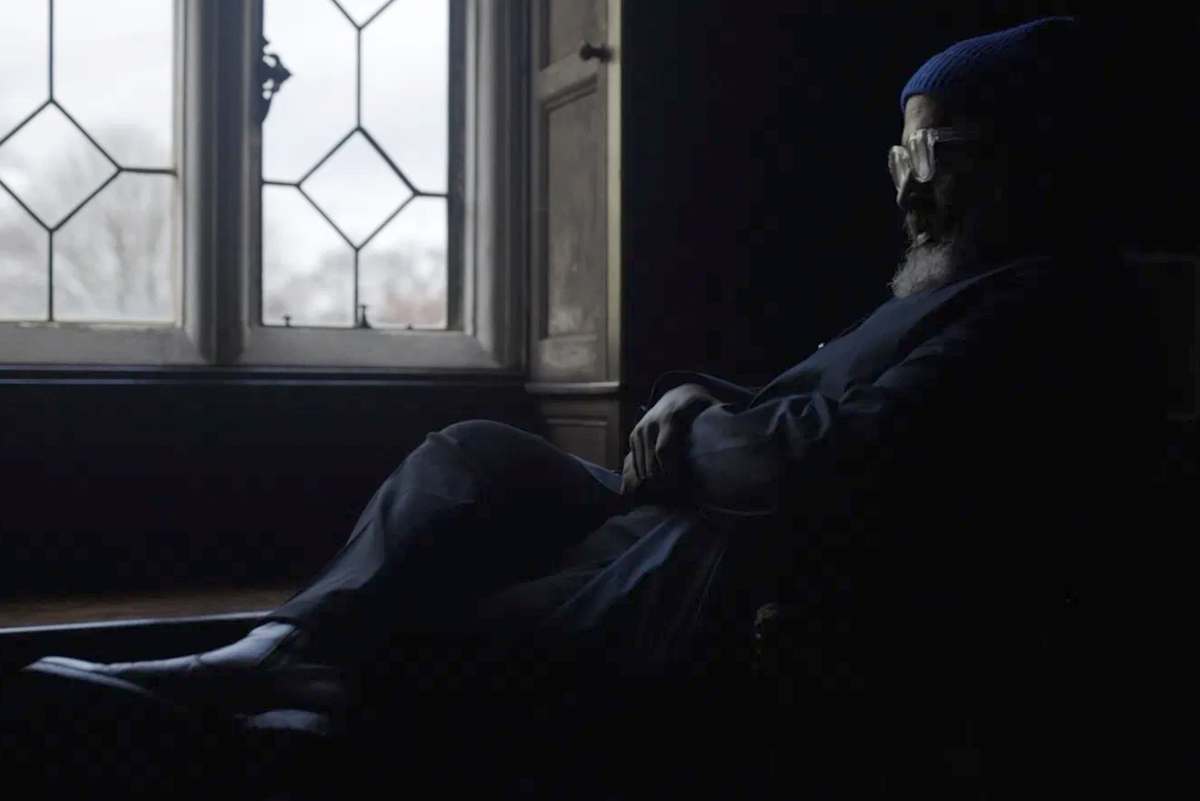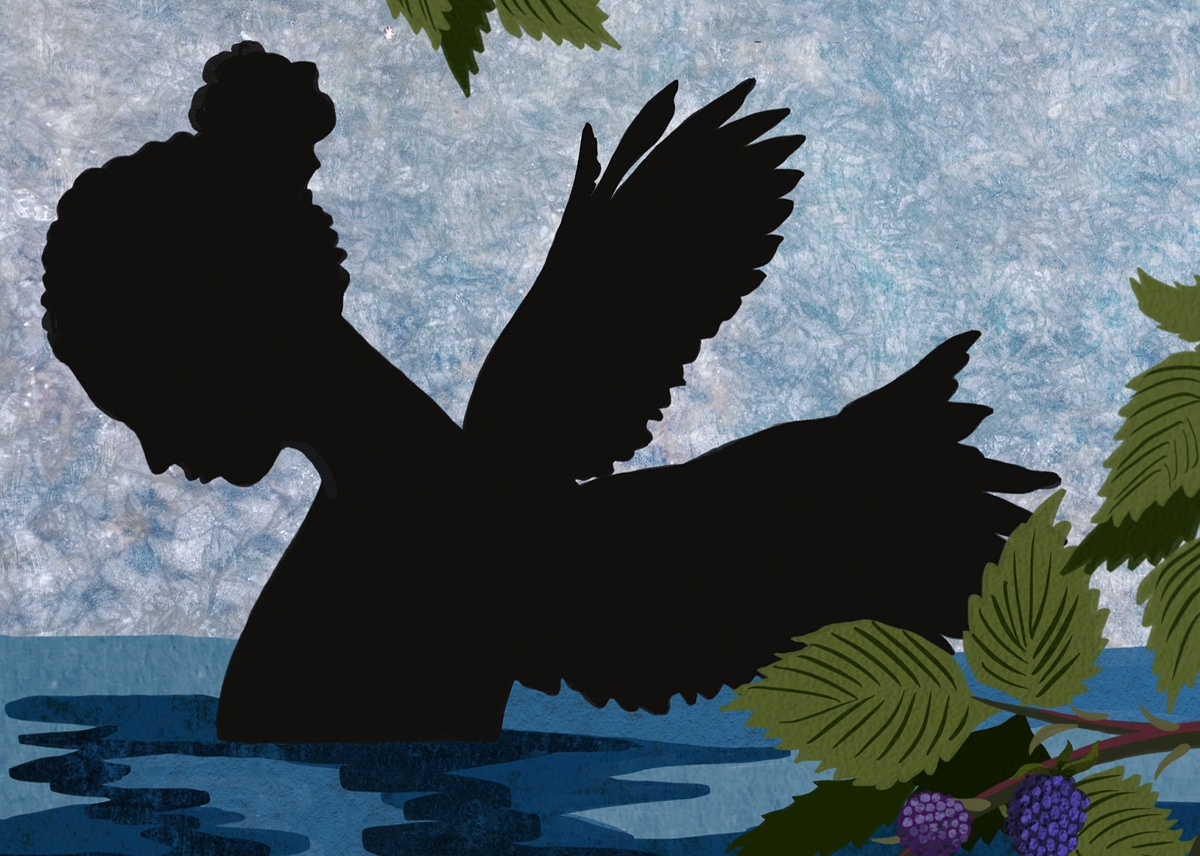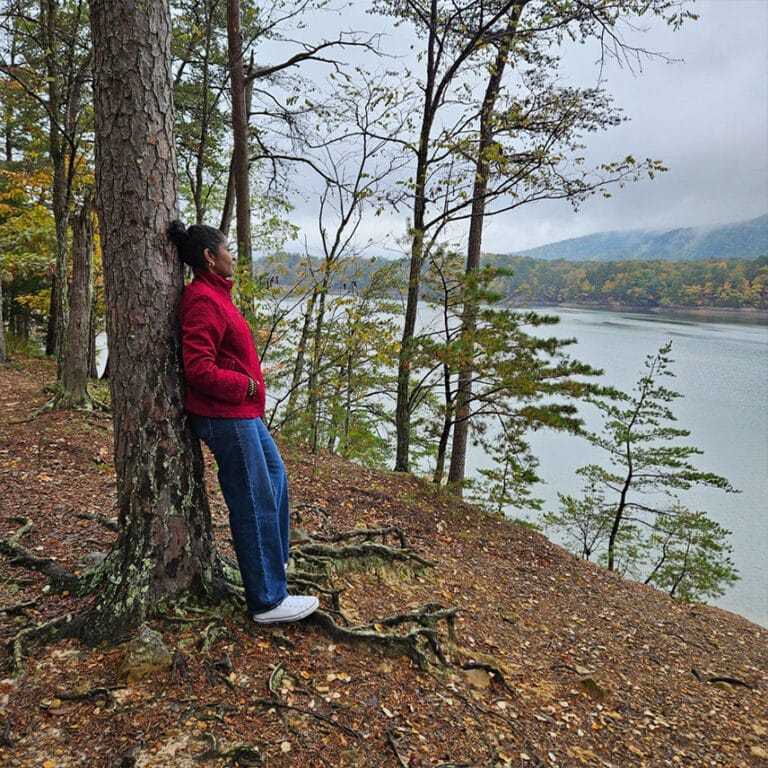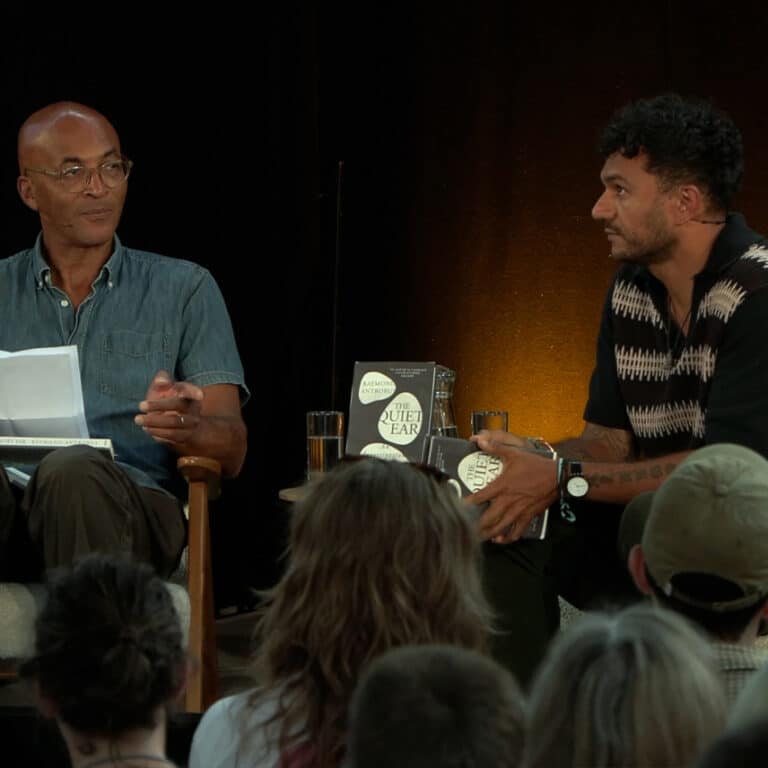Mrs Death Misses Death

Salena Godden
Canongate, 2021
Review by John Siddique
The long-awaited novel by Salena Godden is a thing of beauty to hold in your hand. The wordplay of the title gives you a good sense of what is to come, because if Godden is one thing, she is a wordsmith, a word wrangler. You can trace – from her earliest days as Salena Saliva with the band Coldcut, through her decades of electrifying live performances, radio appearances, poetry collections and film work – the clear line of her distinctive voice leading to this novel.
As Miles Davis once said, ‘Man, it takes a long time to sound like yourself’, but here, appearing to most as a bold, overnight success of a novel, we get the fullness of Godden’s voice as she tells the story of a young, not very well, writer called Wolf Willeford who encounters the personification of death, and tells the meta-story of his relationship with her as they write the book that is in our hands.
Mrs Death first appears to Wolf when he is very young, and appears again in the novel when she is tired of her work, tired of life, and wants to tell someone who will listen to her story. Who better than a young writer? Wolf discovers Mrs Death’s old desk in an antique shop that is closing down and buys it, the desk becoming a channel the stories flow through into his writing.
As she leads Wolf through time and the world, as they bear witness together and discuss the past and the future of humankind (in a modernised, Dickensian way), Wolf reflects on the losses in his own life. Throughout the book, an image of The Tower looms – The Tower of Tarot, Grenfell Tower, A Tower of Death in Spain, and a tower that is used as a writers’ retreat. Godden’s wordplay swirls in an often quite hallucinatory way, and so these fixed points are helpful for the reader to set their eye upon.
The ordinariness of Mrs Death is quite astounding – at one point we see her as a cleaner, a member of the janitorial staff in a hospital. This image affected your reviewer more than almost any other word picture in the book. Of course, she would be ordinary; no grand grim reaper she, but a black woman cleaning on a hospital ward.
For the sheer breath-taking quality of Mrs Death’s voice, Salena Godden plays to her writer’s strengths at full power. The novel, however, is still very much a poem in its structure, rather than a linear narrative. Such is the intensity of the writer’s voice – her ability to dance with language as she explores the vasana, or pain-body, of our current times – there is sometimes not much room for the reader to breathe. That said, Godden has created something quite new in the shifting landscape of the text, something like a performative novel.
A thoroughly 21st-century book, you can’t look away from what you are seeing. It is so strong, I found myself automatically reaching out for it, wanting it to continue. One thing is sure, you are not going to come out the same way you went in. It will stay in your body, and that is a rare thing for a book these days.
Granta 173: India
A look at four short pieces of fiction from Granta's latest edition showcasing Indian writing
The Thing with Feathers
Dylan Southern’s film adaptation puts masculinity front and centre
It Was Just an Accident
Iranian director Jafar Panahi's film probes the relationship between individuals, the state and violence with determined humanism
Other Wild
Emily Zobel Marshall invites us to heal by connecting to our senses and the natural world
A Novel Cure
Co-hosts Ella Berthoud and Isabelle Dupuy introduce our new podcast series, A Novel Cure, focussed on bibliotherapy. Each month listeners can write in with their dilemmas, and our dynamic duo will suggest remedies for the head and heart, drawn from books.
All the men my mother never married
A chapter from an unpublished autobiography, dedicated to my mother, Sarah Efeti Kange

Reggae Story
Hannah Lowe reads her poem, 'Reggae Story' inspired by her Jamaican father, Chick. Directed by Matthew Thompson and commissioned by the Adrian Brinkerhoff Poetry Foundation.

The City Kids See the Sea
Roger Robinson reads his poem, 'The City Kids See the Sea'. Directed by Matthew Thompson and commissioned by the Adrian Brinkerhoff Poetry Foundation.
Illuminating, in-depth conversations between writers.
Listen to all episodes
SpotifyApple Podcasts
Amazon Music
YouTube
Other apps
The series that tells the true-life stories of migration to the UK.
Listen to all episodes
SpotifyApple Podcasts
Amazon Music
YouTube
Other apps
Afro-Caribbean writer Frantz Fanon, his work as a psychiatrist and commitment to independence movements.
Listen to all episodes
SpotifyApple Podcasts
YouTube
A six-part audio drama series featuring writers with provocative and unexpected tales.
Listen to all episodes
SpotifyApple Podcasts
YouTube
















